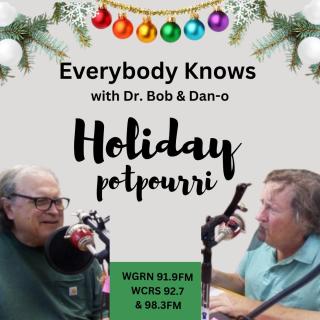I’ve always had a soft spot for Bobby Keen, Lyle Lovett’s college friend at Texas A&M and author of that most inadvertent of sad songs, “Feelin’ Good Again.” Notwithstanding the success of 1989’s “The Road Goes On Forever,” Keen never got big enough to forget how to write songs, and although his recent albums have been spotty they have still contained gems like 2009’s “Goodbye Cleveland.”
“Happy Prisoner” is subtitled “The Bluegrass Sessions,” and contains 15 tunes that are either traditional songs or covers. Although mostly performed with a guitar/mandolin/fiddle/banjo/dobro/double bass lineup, only about half of the tracks are Bluegrass of the sort that Bill Monroe would recognize. The rest are just old country tunes with a string band arrangement. I swear to God I hear electric bass and kettle drums at a couple of points too, for what it’s worth.
The album is a very pleasant listen in its entirety. Keen’s wavering voice is as comfortable as an old coat, and over the last decade studio techniques have near-perfected bringing out the depth in all these acoustic recordings, although perhaps at the expense of intensity. Just the thing for a road trip or background music at the bar.
If you want to listen to the album more intensely, there is a lot to savor. The highlight track is “52 Vincent Black Lightning,” a song by British songwriter Richard Thompson about a bandit named James Adie and his Vincent motorcycle. Keen’s Texas drawl snatches the song back from the home country, reclaiming the motorcycle outlaw myth to the USA where it properly belongs.
Vincents were Brit Bikes, of course, but there was a time when the concept of motorcycles in America wasn’t just fat guys with blue flame bandannas on $30,000 Harley-Davidsons. Once upon a time, Brit racers like BSA’s, Vincents and Triumphs cruised fast and elegant on our highways, streaking past the clumsy, plodding Harleys, and in the 50’s the Black Lightning was the fastest of all.
The rest of the highlights are mostly traditional tunes -- it’s always wonderful to hear the changes that old folk songs take from version to version. “East Virginia Blues,”* for all its weirdness about a mother lying on her bed with a dagger to kill the man her daughter loves best, takes a modern twist with directions to leave those “North Carolinians alone.” Perhaps this should have been clear from the aforementioned dagger-mother, but Keen errs on the side of caution.
I’m most familiar with the Kingston Trio’s frantic version of the murder ballad “Poor Ellen Smith,” with its periodic changes of narrator and implications of executing the wrong man. This version here is melancholy and slow, told from the perspective of the murderer himself on the eve of his hanging. This version may have been closer in time to the 1894 killing in Winston-Salem which inspired the song.
“Wayfaring Stranger” is one of those eternal religious songs which even the heathens, myself included, request.
“The Long Black Veil,” is widely thought to be traditional, but was actually written in 1959. Everybody does it, but not everybody does it well; even The Band’s 1968 version is somewhat underwhelming. Keen does it well, keeping a high harmony on the verses as well as the chorus, resulting in a fluidity which suits the tune. Tommy Thompson’s “Twisted Laurel” is also a treat, one of those country tunes where the sophistication sneaks up on you.
Unfortunately, the album suffers from some of the other song choices. The tunes aren’t badly arranged or played, they are just kind of blah. I mean, there are worse bluegrass tunes than “Footprints in the Snow” and “White Dove,” but there are a lot of better ones too. There are certainly 500 murder ballads better than “99 Years for One Dark Day” (including several by Keen), and Monroe’s “Walls of Time” has more mountains and valleys than an honest man can tolerate. Perhaps these songs have more of a personal connection for Keen, who pens a paragraph entitled “Why Bluegrass” on the CD Jacket (I didn’t read it).
I only have a couple of performance quibbles: “Hot Corn, Cold Corn” sounds like it was a lot more fun for the band to record than for me to listen to, and Jimmy Rodgers’ “T for Texas” is lethargic, perhaps due to an appearance from Lovett (it does have an astonishing banjo blues solo though, which is not something you hear every day).
Overall, it’s worth picking up -- “1952 Vincent” is worth the price of admission by itself, there are eight solid tracks, and the whole thing’s pretty good if you have a windshield to look out of while you listen.
*The traditional “East Virginia Blues” is credited to A.P. Carter of the Carter family, who -- as he did frequently -- copyrighted the song but almost certainly did not write it.



